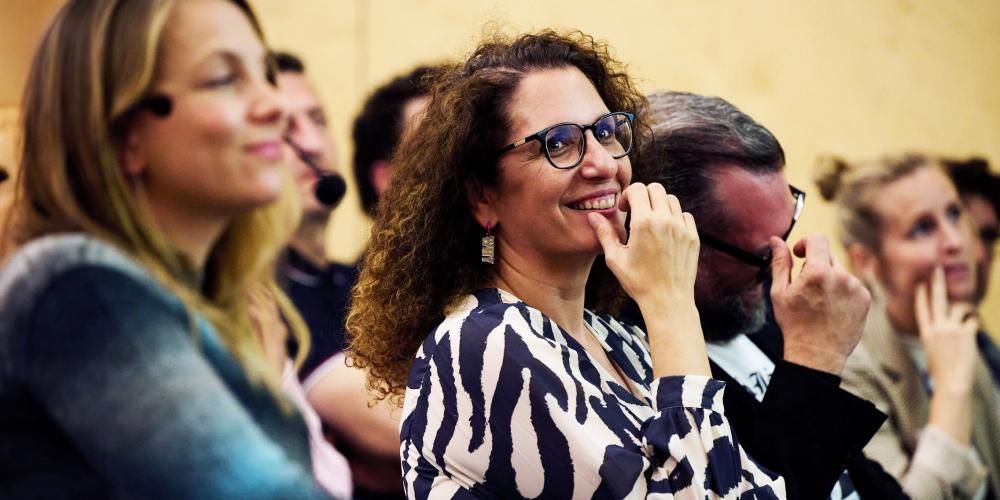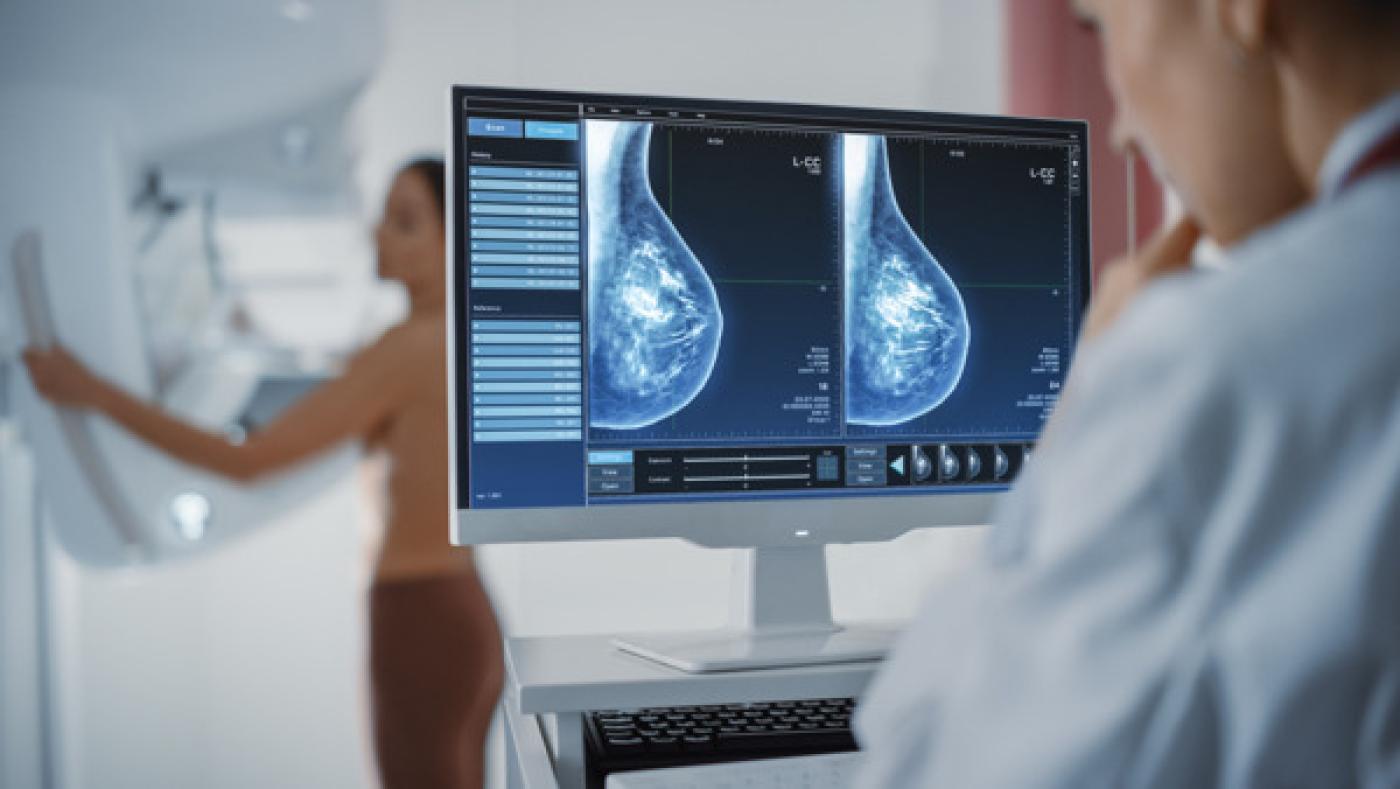
On 13 September, we celebrate World Testament Day annually. The Yamina Krossa Fund at the Vrije Universiteit Brussel (VUB) frequently receives inquiries about legacies, as observed by the VUB Foundation. The fund, founded by Yamina Krossa, aims to raise money for the groundbreaking cancer research led by Professor Damya Laoui and her team. Yamina Krossa: "We really need all the help we can get."
Do you have a charity in your will yourself?
"To be honest, I haven't really thought about it yet," says Krossa. "I'm just doing my best to make a difference during my lifetime. Since 2018, I've been working on my fund, and before that – since 2015 – with Benetiet, to ensure breast reconstructions were reimbursed. Soon, I’ll have been working on breast cancer and breast cancer research for nearly ten years."
"Still, I do want to include a charity in my will. This year, I turn fifty, and for me, that's a moment to really think about it. My mother died when she was 49. I always thought: the day I turn 50 will be a strange day. When I was diagnosed with cancer at 38, I feared I wouldn’t make it to 40. Now, I think it’s amazing to turn 50. Some people get an identity crisis from it; I’m just thankful."
“I know the fear of relapse all too well myself. I have a spot on my back that sometimes hurts, and I often wonder: could the cancer return?”
How did you end up at VUB?
"After Benetiet became unnecessary because breast reconstructions were finally reimbursed, we still had EUR 40,000 left in the account. Right at that moment, I read an article in the newspaper De Tijd about Damya Laoui, who had been named an Innovator Under 35 by MIT (an American university). Her research focused on developing therapies to protect breast cancer patients from relapse. As a former patient, I immediately felt connected, so I emailed her, asking if she could use that money. I thought she was already receiving a lot of financial support, but that turned out not to be the case. She, in turn, thought my email was a joke from a colleague, because when does EUR 40,000 just fall into your lap like that?"
"After that donation, Isabelle Marneffe, who was head of the VUB Foundation at the time, contacted me and asked if I wanted to establish a fund in my name. At first, I found that strange, because I thought you could only set up a fund after your death. Isabelle had a good laugh and assured me that wasn’t the case. That’s how the adventure began."

Damya Laoui and Yamina Krossa (c) Nadia El Makhfi
What has the Yamina Krossa Fund achieved?
"It took a while for me to realise how much money was actually needed for Damya Laoui’s research. At the launch of the fund, a journalist from De Morgen asked her what she would do with the EUR 40,000. She said: 'Don’t get me wrong, I’m very grateful for the donation, but the lab costs are currently EUR 3,000 per week.' That’s when I realised that with that amount, we could only cover 13 weeks of lab costs."
"It was my husband who asked, 'What are we going to do to turn that EUR 40,000 into EUR 400,000?' We then adjusted our strategy and sought out 400 companies or individuals who each wanted to donate or raise EUR 1,000, for example, in exchange for a keynote speech I would give or by organising events."
"Many people warned me that EUR 400,000 might be too ambitious and that I needed to be realistic, but today the counter stands at EUR 725,000! Still, costs keep rising; lab costs have now tripled to EUR 9,000 per week. So, Damya and I continue to raise funds, and we really need all the help we can get."
"The idea of supporting research that will one day – hopefully! – lead to a vaccine so that cancer patients no longer need to fear relapse, I find, is simply wow."
What has the scientific research achieved thanks to the Yamina Krossa Fund?
"The original goal was to prevent recurrence in breast and lung cancer, but now it appears that the techniques may apply to all forms of cancer with solid tumours. I know the fear of recurrence all too well. I have a spot on my back that sometimes hurts, and then I wonder: could the cancer come back? Unfortunately, I can't be helped by the therapy Damya is developing because you need the original tumour for it. But the idea that research is being done into a possible therapy, or even a vaccine, so that cancer patients no longer need to fear recurrence, I find that fantastic. All the honour for that goes to Damya and her team."
Speaking of honour, you’ll soon have an audience with the King.
"During COVID, the King launched the initiative 'BeHeroes'. A donor to the fund nominated me. There were many nominees, but fifty were invited to sit in the honorary stands during the National Day parade. That was already an amazing experience. Of
those fifty, twelve good causes have now been selected to visit the King, and we’re one of them. So soon, I’ll be shaking His Majesty's hand. That’s another great opportunity to bring attention to the fund."
Exposure is an important part of the work.
"I really enjoy working with the colleagues at the VUB Foundation. Their communication network and support are incredibly effective. Damya and I also have a strong bond; we could be family, and I’m proud that I can help make her research possible. Damya told me that without our support, her research would probably have remained theoretical and that thanks to our funds, it now has a real chance to be developed and hopefully help patients in the future."
"I always tell people I meet: if you donate to this, you're investing in hope and your own future. Unfortunately, one in three people gets cancer, and there's always someone close who will be affected by it."
When could the research yield results?
"I’ve done the maths. If it all works out – and that’s not certain – it will likely be around the time I retire, in ten years, that the first results on effectiveness in patients will become available. That would be a fantastic moment."
"Some ask me why I support research from which I won’t personally benefit. My youngest son Gilles put it beautifully: 'It’s like planting a tree, knowing that you will never sit in its shade.' That’s also how you can think about a legacy. You won’t benefit from it yourself, but you know that it will change others’ lives, extend lives, and prevent a lot of sorrow."
VUB Foundation
If you want to make a difference for society after your death through education, research, and innovation, you can include VUB in your will and invest via your legacy. This is done through a bequest, where you support a specific research project, fund, or initiative at VUB. Would you prefer to donate to VUB during your lifetime? That is also possible, in the form of a donation.
VUB Foundation provides all the information and support you need regarding legacies.
VUB Foundation raises 1.7 million euros through legacies for fundamental and applied cancer research
"The majority of spending from legacies goes towards the purchase of high-tech equipment. The Jeanine Cooleman bequest was used to purchase new laboratory equipment that enables (non-invasive) imaging, fluorescent and bioluminescent measurements, cell isolation, and molecular studies. These techniques are crucial for studying cancer processes in tumour cells and models in basic research, as well as for conducting clinical studies."
